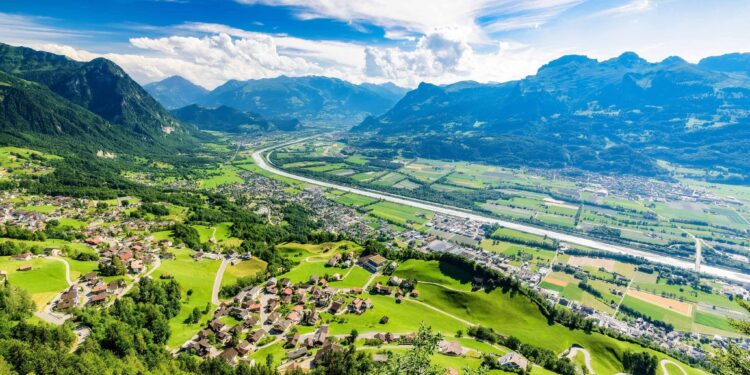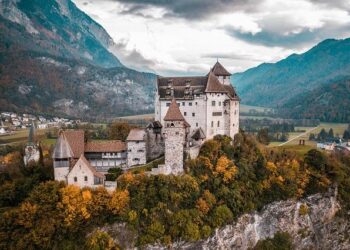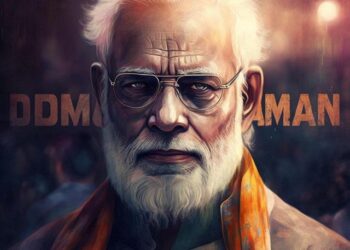Liechtenstein is making a notable return to the international judo scene, signaling a renewed presence on the world stage through the European Judo Union. After a period of relative silence in major competitions, the principality’s athletes are stepping back into the spotlight, ready to compete alongside Europe’s best. This resurgence not only highlights Liechtenstein’s growing commitment to the sport but also underscores the European Judo Union’s dedication to fostering judo development across all member nations.
Liechtenstein’s Judo Revival Signals New Competitive Era in Europe
After years of relative silence on the international judo scene, Liechtenstein is making a remarkable comeback that is generating buzz across Europe’s martial arts community. The nation’s renewed focus on developing homegrown talent and investing in modern training facilities has laid the groundwork for a vibrant judo ecosystem. Key athletes have emerged from rigorous national programs, showcasing not only technical skills but also the resilience and strategic adaptability necessary to compete against Europe’s judo powerhouses. This resurgence is more than just an upswing in performance; it represents a strategic shift designed to elevate Liechtenstein as a credible force in upcoming European championships.
At the core of this revival lies a combination of targeted coaching initiatives and increased participation at the grassroots level. The Liechtenstein Judo Federation has introduced several measures that include:
- Youth development camps fostering early engagement and talent identification
- International training exchanges providing athletes exposure to diverse fighting styles
- Investment in sports science helping optimize physical conditioning and injury prevention
These efforts have translated into tangible results, as seen in recent tournament placements and rising athlete rankings across multiple European weight categories. The momentum gained is expected to challenge the traditional judo dominance of larger nations, adding a fresh layer of competitiveness to the continental scene.
| Athlete | Weight Category | Recent Placement | Ranking Progress |
|---|---|---|---|
| Elena Maurer | -63 kg | 5th – European Open | +12 spots |
| Florian Gassmann | -81 kg | Quarterfinalist – Continental Cup | +8 spots |
| Jasmin Vogt | -52 kg | Bronze – Regional Champs | +15 spots |
Key Athletes and Strategies Driving Liechtenstein’s Return to International Judo
At the heart of Liechtenstein’s re-emergence on the international judo scene are a handful of dynamic athletes who have demonstrated remarkable skill and determination. Julia Meier, a lightweight judoka known for her aggressive grip fighting and swift groundwork, has impressed critics and fans alike with her tactical mat presence. Alongside her, Marco Schmid has been a standout in the middleweight division, blending traditional techniques with innovative counterattacks that have caught opponents off guard. Their commitment to continuous improvement through personalized coaching and data-driven performance analysis has been a vital factor in Liechtenstein’s renewed competitiveness.
Complementing individual talent is the federation’s strategic focus on modern training methodologies and international collaboration. Liechtenstein’s judo program now emphasizes:
- Cross-border training camps with leading European judo nations
- Sports science integration to optimize recovery and injury prevention
- Mental resilience workshops to enhance competitive mindset
- Analytics-driven opponent scouting to tailor match strategies
This comprehensive approach has laid a strong foundation for sustaining long-term success and expanding the country’s presence beyond regional tournaments.
| Athlete | Weight Class | Recent Achievement | Signature Technique |
|---|---|---|---|
| Julia Meier | -52 kg | 5th Place, European Open 2023 | Uchi Mata |
| Marco Schmid | -81 kg | Bronze, International Judo Trophy 2023 | Seoi Nage |
| Anna Vogt | -57 kg | Quarterfinals, World Juniors 2023 | Kouchi Gari |
Recommendations for Sustaining Growth and Enhancing Liechtenstein’s Judo Presence
To maintain momentum and solidify Liechtenstein’s standing within the international judo community, a strategic focus on youth development is essential. Establishing grassroots programs that engage schools and local clubs will not only nurture future talents but also create a sustainable pipeline for elite athletes. Collaboration with neighboring countries through joint training camps and exchange initiatives can enhance skill acquisition and exposure to diverse fighting styles, fostering a more competitive edge on the European stage.
Investment in infrastructure and coaching expertise remains critical. Upgrading training facilities and certifying coaches via recognized European Judo Union programs will elevate the technical standard across all levels. Additionally, leveraging digital platforms for athlete monitoring and video analysis can improve performance feedback loops. Below is a summary of key action points recommended for sustained growth:
- Expand youth outreach through school partnerships and community events
- Enhance coach education with targeted EJU certification workshops
- Develop regional collaborations for shared training and competitions
- Modernize facilities to meet international training standards
- Adopt technology for performance tracking and analysis
| Focus Area | Action | Expected Outcome |
|---|---|---|
| Youth Engagement | Introduce judo curriculum in schools | Broaden talent pool |
| Coach Development | Host EJU certification seminars | Higher coaching standards |
| Infrastructure | Upgrade gym and mats | Improved training conditions |
| Technology | Implement video performance reviews | Enhanced athlete feedback |
Insights and Conclusions
As Liechtenstein steps back onto the global judo stage, its renewed presence signals a promising chapter for the nation within the European Judo Union. With a blend of emerging talent and steadfast commitment, Liechtenstein aims to make a lasting impact in upcoming international competitions. Observers will be watching closely to see how this small but determined country reinvigorates its judo legacy and contributes to the sport’s evolving landscape across Europe.















